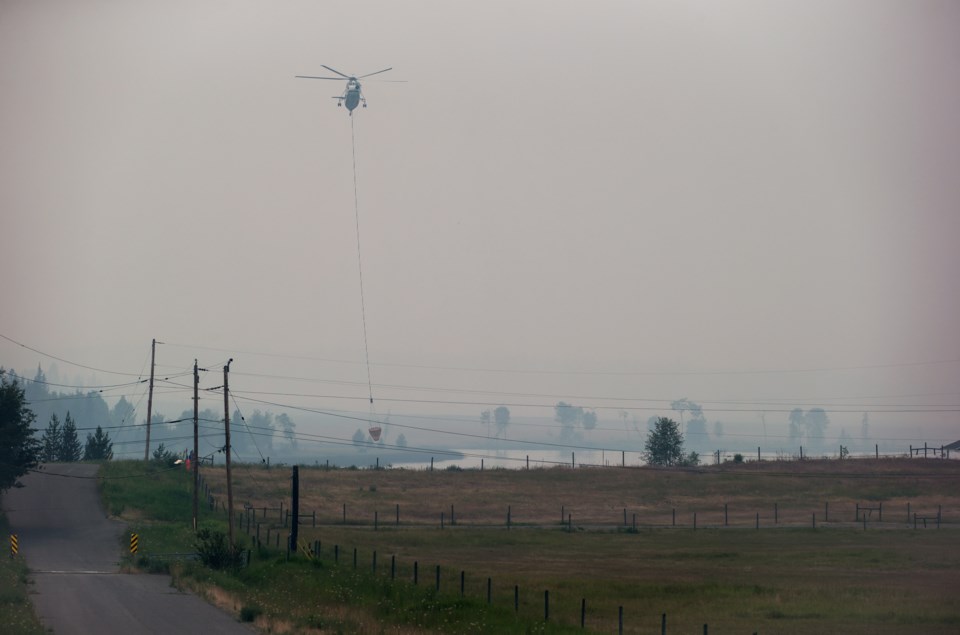KAMLOOPS - A seasoned British Columbia firefighter says he's never seen anything like the fast-moving wildfire that tore through his new home, leaving him and his neighbours scant seconds to escape.
Wilfred Duncan moved into his friend's house on the Ashcroft Indian Reserve two weeks ago, only to watch the home burn down after the wildfire overwhelmed the community, destroying more than 30 buildings.
Duncan is a retired forestry firefighter with 20 years of experience, but said the Ashcroft blaze was overwhelming.
“There was no time to get scared,” he said, speaking outside the evacuation services centre in Kamloops on Saturday. “We just reacted. There was no time to think. None.”
The Ashcroft fire, about 100 kilometres west of Kamloops, ballooned Friday from seven to 40 square kilometres, prompting officials to order Ashcroft and then nearby Cache Creek to evacuate.
“The way that was coming, there was no stopping it,” Duncan said. “We're talking dry sagebrush, dry grass. What's going to stop that? That's just like lighting toilet paper on fire.”
Duncan was on the front line of the Barriere wildfire in 2003, which is the last time the provincial government declared a B.C.-wide state of emergency because of fires, but he said it doesn't compare to his experience in this disaster.
“Maybe it's different because here I was watching my friend's home, my niece's home burn,” he said, looking away as he blinked back tears. “What could we do but stand there and watch? Crying isn't going to bring anything back.”
A thick, smoky haze hung over Kamloops on Saturday, making it difficult to see the dry, brush-covered hills on either side of the Thompson River Valley.
Angie Thorne, also a resident of the reserve in Ashcroft, said she and her husband managed to escape with their camper trailer before watching flames engulf their home of more than two decades.
“The second trip in to get (my husband) out of there I drove through flames, got to him, told him to get out, then drove through flames to get back,” she said.
The family lost a cat, but was later reunited with a black Labrador retriever, which Thorne said had been “scorched and seared.”
Thorne said she is grateful her family is safe and for all the help they have received from the community, wiping away tears as she spoke outside the evacuation centre.
Gordon Davis, the centre's manager, said more than 500 people had registered as of Friday.
Some of those who signed in would have represented entire families, he added, describing the mood as anxious.
“A lot of them watched their homes burn down,” he said, as workers in yellow vests raced around the overcrowded room. “A lot of them don't know if their homes are still there. That not knowing is stressful.”
Children huddled near their families with brightly coloured hula hoops and bubble-blowing kits. The toys, along with food and other supplies, were donations from local businesses and community members.



